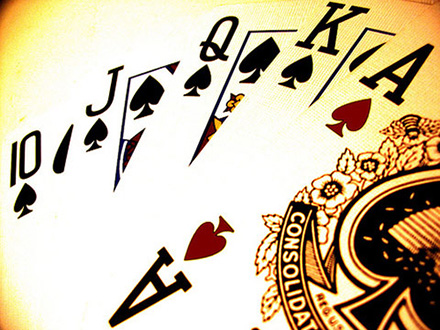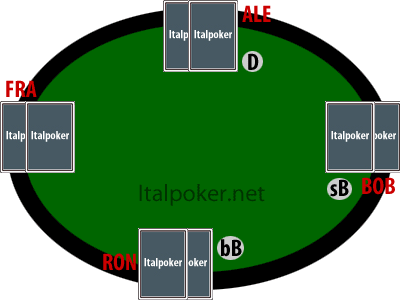The rules of poker: the basic concepts
How does a hand of poker take place? The actions of the players.

Poker includes some rules that are valid for any variant of the game. We therefore analyze the actions that players must and can perform at the table
In general, all the episodes that are carried out by the players are constituted the so -called dish (pot).
Unless there is a situation of equality, the dish is won by the player who has the highest score, or in any case by the only player left at the table in the event that all the others have abandoned the game.
The poker tables host from a minimum of 2 to a maximum of 10 players. Depending on the game modes, in some cases the player can leave the table taking away what he earned (poker cash), in others he is forced to complete the game, until he loses everything or wins the entire dish (ranking tournaments with buy-in).
The early episodes:

All poker variants include a compulsory episode before the hand starts.
In Texas Hold'em mandatory episodes are called dark (small blind) and counterbuio (big blind) And they must be made by the two players who are on the left of the Mazziere (or button in internet terminology). Since after each hand the Mazziere moves a clockwise position, the players make these episodes in turn.
In poker variants such as the draw and the Stud, before receiving the cards, each player must make an episode called "Ante".
In the image, D represents the Mazziere, SB the dark and bb the counterbuio.
The actions of the players:
- Check (knocking, pass): "Checking" means staying in the hand without making episodes. This is possible only if even the players who made their turn previously in turn did not make episodes. If all players check, the current episode tour is concluded.
- Episode (Bet): pointing means putting a number of chips on the plate. This action is allowed if the players who made their turn previously did not take an episode in turn.
- Call (call, see): Calling, means putting on the plate an amount of chips equal to the value of the episode made by the player who precedes us at the table, or "seeing" the opponent's bet. This allows you to continue within episodes.
Let's take an example: the first player checks, the second player focuses 10 chips. Now it's our turn: call calling 10 chips on the plate. The turn passes to the next player. If all players call call, the episode tour has finished. If it is the last tour of episodes, those who have aimed must show their hand to the player he called. - Fold (Leave): Folding, or folding, means abandoning the ongoing hand. This action can be made at any time by each player, but the chips that have been pointed up to that moment are lost.
- Relaunch (raise): Relating means increasing the value of the episode made by those who have aimed previously, putting a greater number of chips on the plate.
Let's take an example: the first player focuses 10 chips. The second calls and then puts 10 chips on the plate. Now it's our turn: to relaunch we make an episode of 20 chips or higher. - L'All-In: When all the chips of a player are on the plate, it is said that this player is all-in.
In the situation in which a player is all-in because he has not managed to completely cover the episode or relaunch of an opponent, a secondary dish is created (Side Pot). The All-in player will participate (and can win) only for the main dish (main pot), that is, the one in which he has put their chips, while the other players will compete for both dishes. In the tables with many participants, during a hand you can come to create more Side Pot. - He sit-out: What in online poker is indicated as sit-out, in live poker is equivalent to getting up from the table. During the sit-out period of a player, the game continues without him: this means that even if he does not actively participate in the hands, the player is still obliged to carry out the Blind or ante episodes (in poker room these episodes are made in automatic from the system).











